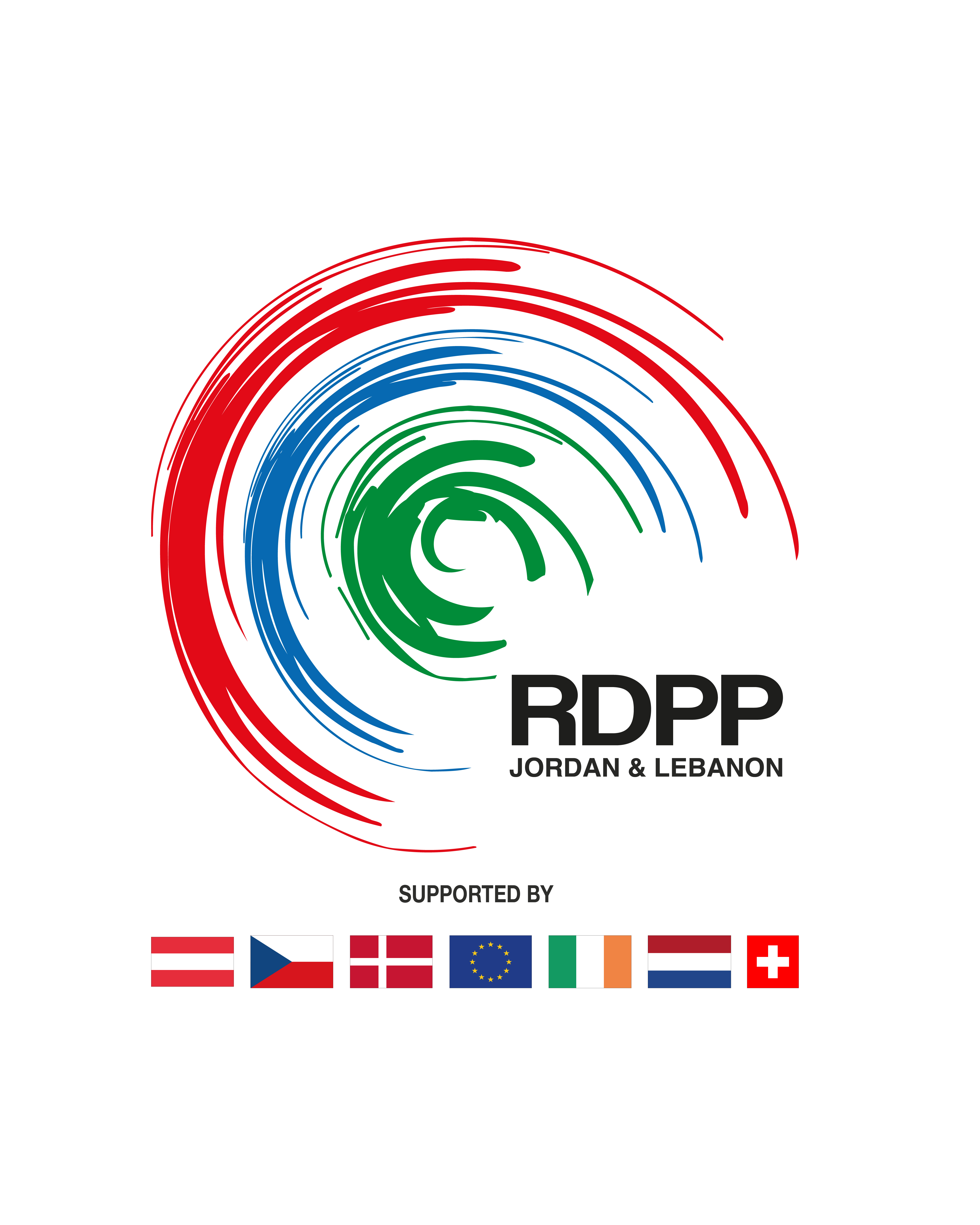Strengthening resilience and long-term rehabilitation through skills development
This project aims at increasing resilience and livelihood opportunities of targeted Syrian refugees and vulnerable host communities to aid long term rehabilitation. The project supported Syrian and Jordanian youth and women through increased income, employment opportunities on farms, and engaging in cooperatives. LWF also established apprenticeship schemes for graduates from vocational training centers, and women’s self-help groups. Awareness campaigns were also conducted on working conditions, policies and practices, and work permits.
Jordan STATUS: Completed
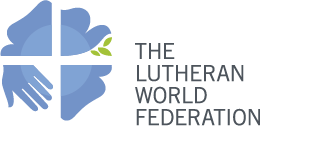
Regional Survey On Impact Of Displacement On The Socio-Economic And Living Conditions Of Refugees And Host Communities
With the support of the RDPP and UNHCR, the World Bank is conducting a regional survey, covering Lebanon, Jordan and Iraq (KRI), that measures the impact of displacement on the socio-economic and living conditions of refugees and host communities. The research will provide relevant and evidence-based information necessary for the RDPP and humanitarian and development actors (including governments) collectively to tailor the response amidst the rapidly changing environment and priorities
Lebanon STATUS: completed
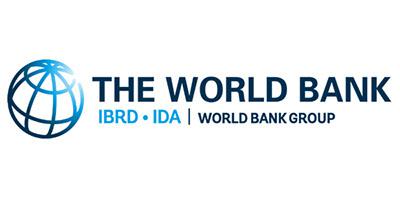
Forced Migration Review Special Issue On The Syrian Crisis: Displacement And Protection
The RDPP supported the publication of a special issue of the Forced Migration Review from Oxford University’s Refugee Studies Centre, on “The Syria crisis, displacement and protection”. The issue explores protection and development-led strategies that face the displacement challenges in the region, focusing primarily on costs and impacts of displacement on Syrian refugees and host countries, and on protection needs of the refugees
Lebanon STATUS: completed
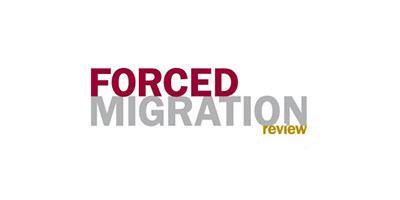
Durable Solution Platform For Displaced Syrians
The RDPP is supporting the “Durable Solutions Platform” created by the consortium of the three INGOs. The project aims to create a civil society-led Durable Solutions Platform to develop forward thinking scenarios for possible future solutions, aiming to inform programming and planning for the Syrian refugee crisis. The platform conducts research on policy options in a solutions-oriented perspective and has a strong component on advocacy and dialogue. It aims to provide clarity on rights and guiding principles, taking into account international and national law and policy. These recommendations will be developed through a robust research agenda set out by the Durable Solutions Platform.
Lebanon STATUS: Completed
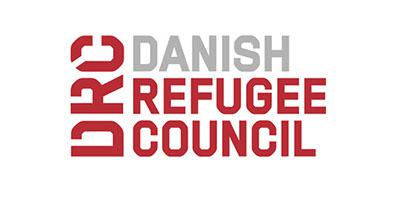
Development Of Evidence-Based Policy Options And Frameworks For The Accommodation Of Refugees In Countries Affected By The Syria Crisis
The RDPP is supporting UNDP Sub-regional Facility to engage governments, civil society, donors and other actors on policy options for long-term planning including refugees. The project addresses the gap in analysis, understanding and dialogue about country-specific policy options for governments in the region faced with accommodating refugees from Syria and the impact of the crisis. It provides a process for governments and the international community to share knowledge, explore options and create the required policy space for decision making, through the following three phases: (i) mapping and building evidence and scenarios: through mapping and collecting relevant data from existing research and new research, including data about the financial impact of the crisis, policies, legal frameworks, actual practices regarding socio-economic opportunities for refugees, and social inclusion and cohesion. (ii) conducting national and cross-regional policy dialogues: through organizing a series of policy dialogues in each country . (iii) consolidating options for good policy and practice. The project works in partnership with governments in neighbouring countries, UNHCR, ESCWA, the World Bank and other development organisations in the region.
Lebanon STATUS: Completed
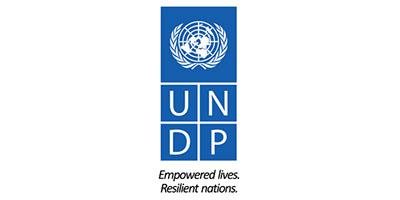
Research On The Education, Skills, Work Experiences And Work Preferences Of Syrians In Jordan
The RDPP, in partnership with the Jordanian Ministry of Planning and International Cooperation (MoPIC), is supporting the “Research on the education, skills, work experiences and work preferences of Syrians in Jordan” (RESW), an initiative carried out by the Oslo-based Fafo Institute for Labour and Social Research and the Jordanian Department of Statistics. The project aims at collecting primary data and reliable information on socio-demographic characteristics of the Syrian population in Jordan, and its educational and professional background. Through a nation-wide survey targeting 9,200 Syrian households in the Kingdom, the RESW intends to enable the Jordanian Government to develop, adjust, monitor, and evaluate labour market policies, livelihoods interventions and programs targeting host and refugee communities in Jordan..
Jordan STATUS: Completed
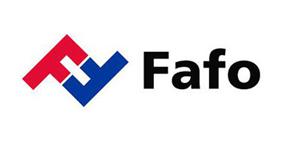
Forced Migration Review Issue On Syrians In Displacement
The RDPP supported the publication of issue 57 of the Forced Migration Review from Oxford University’s Refugee Studies Centre, titled “Syrians in displacement”. The issue reflects on learning around the protracted situation of Syrian displacement as the conflict continues and features articles from several RDPP partners.
Jordan STATUS: Completed
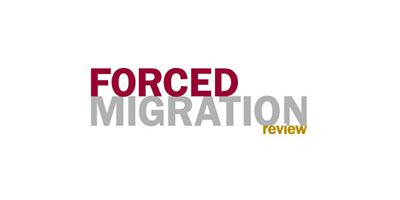
VOICE & Accountability For Syrian Women & Men
The project works with youth, primarily Syrian refugees, in advocating for their rights towards authorities through artistic tools, and increasing their capacity to raise awareness in their communities as empowered and active agents for change. The project also focuses on the issue of gender equality and advocates against sexual and gender-based violence (SGBV), including through work on masculinity issues with men to change roles in society. Through policy level dialogue and capacity building, ABAAD collaborates with national government institutions towards prevention and response to SGBV. The project provided protection to SGBV survivors through direct services in its shelter houses, such as specialized case management, life skills training and awareness sessions by the shelter staff. It targets specific areas in South Lebanon, North Lebanon and Middle Bekaa. A new phase of the project is under discussion
Lebanon STATUS: Completed
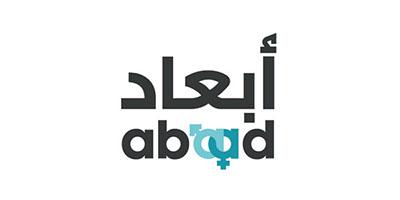
ACCESS: Accountable Cross Country Coordination For GBV Emergency Safe Settings
The overall aim of the project is to contribute to a holistic and accountable GBV protection, prevention and response mechanisms at institutional and community levels. Under the project, relevant GBV tools will be produced and endorsed by concerned actors and the capacities of different stakeholders at national and sub-national levels will be improved to respond to the needs of GBV survivors. The project will also work on increasing the sense of safety, knowledge and competencies on a range of different basic life-skills of women survivors or at risk of GBV. In addition, GBV and child protection community front-liners in Lebanon will be equipped with the needed knowledge and skills on child marriage and case management of rape. Community front-liners will in turn raise the awareness of female and male youth from Syrian and host communities on these issues. Working also with men, men with abusive behaviours will be targeted with quality engendered psycho-therapy sessions. Finally, ABAAD will work on a national campaign as part of the 16 Days of Activism Against Gender-Based Violence to sensitize on relevant issues related to sexual exploitation and rape-marriage laws in Lebanon.
Lebanon STATUS: Completed
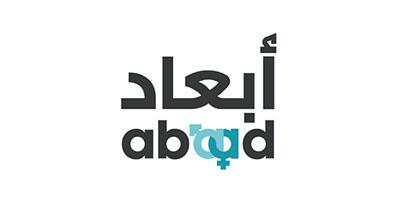
Enhanced Capacity Of CSOs In Lebanon To Influence Regulatory Frameworks And Policies Affecting Refugees’ Protection And Increase The Access To Protection Services And Assistance For Refugees
In partnership with ALEF (Act for Human Rights), Oxfam will work with a network of protection service providers, mainly CSOs in 5 districts in Lebanon (North Bekaa, West Bekaa, Rachaya, Arsal and T5). Working on the capacity building of the network, Oxfam and ALEF will work with the network to have an updated advocacy strategy and action plan, to develop a protection monitoring framework that allows network members to generate evidence for advocacy purposes and finally to jointly implement advocacy initiatives at the local, national and international levels achieving the objectives of the network. On the service provision level, a mapping of specific service provision needs and gaps at the districts and cadastral levels in the Bekaa and T5 will be conducted, a number of innovative service provision projects will be implemented by selected network members through collaborative outreach activities. Finally, on the capacity building side, Oxfam will deliver a tailored capacity building package on networking, protection and advocacy themes for the protection network members and will organise networking and learning exchange visits among network members CSOs and with other CSOs doing similar work in the region target locations.
Lebanon STATUS: Completed
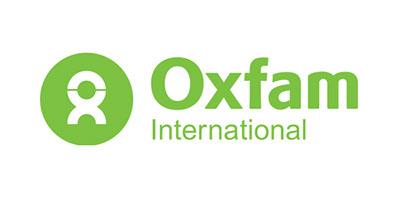
Empowering Women And Youths In Lebanon Now! (EMPOWERING NOW!)
The project supports mostly female refugees in Beirut/Mount Lebanon, Bekaa, South Lebanon and North Lebanon, to be economically active and self reliant, while improving their opportunities to enter the labour market. This is done by enhancing their professional (technical, vocational) and life skills opportunities. These vulnerable groups are then provided with work-related experience, and placement/internship opportunities, while some women producers and cooperatives are supported to establish their businesses through start up grants. In an effort to improve the psycho-social well being of the targeted population and their ability to cope with the effects of the Syrian crisis, the project also supports beneficiaries through psychosocial group and individual counselling, and seeks to improve social cohesion between Syrian refugees and host communities.
Lebanon STATUS: Completed
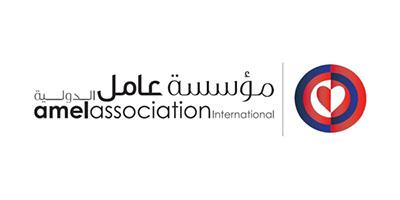
Equitable Access To Dignifying And Safe Livelihood Opportunities For Displacement-Affected Populations In The Bekaa
This project seeks to facilitate employability and contribute to the self reliance of vulnerable refugee and host populations, particularly for youth and women, through job matching, apprenticeships and referral of jobseekers to employers in the Bekka area of Lebanon. This will be done through linking job seekers to job opportunities that match their skills and preferences, through providing job counseling services, and through providing support for micro and small enterprise development. The project also has research and advocacy components whereby policy barriers to Syrians’ participation in the labour market are also explored with policy makers and civil society.
Lebanon STATUS: Completed
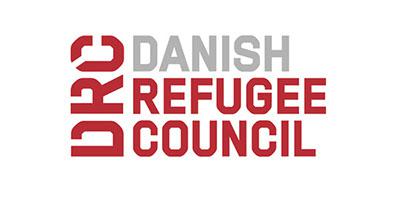
Support To Livelihood And Local Economic Development Opportunities In Host Communities
The project supports enhancing access to employment and self-employment opportunities for vulnerable refugees and Lebanese host community in Akkar and Mount Lebanon. It does so through building networks and market and home-based skills of the targeted population through vocational training, complemented with basic financial management trainings, and through on the job training through apprenticeships with private sector firms and NGOs. It also provides job and legal counselling, employment referrals, and referrals to specialized service providers. The project also promotes job creation by supporting both entrepreneurs and existing microenterprises to establish or expand businesses for sustained and profitable self-employment and employment generation.
Lebanon STATUS: Completed
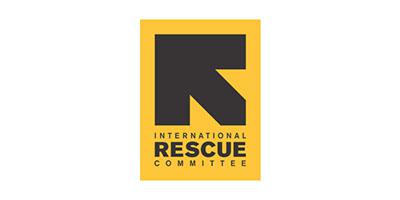
Support To Livelihood And Local Economic Development Opportunities In Host Communities
This project supported improved livelihoods in the Bekaa, North, and Mount Lebanon areas through: a) cash for work and internships for youth (refugees and host communities) through improving public infrastructure and environment assets in areas with most vulnerable host communities; b)supported internship programmes for youth and c)supported vocational/skills training and creation of micro and small enterprises (MSMEs), with mentoring support, through provision of cash grants. The project also supported increasing the competitiveness of existing conflict-affected MSMEs in the targeted affected areas through capacity building, equipment upgrade and paid internships of vulnerable trained youth.
Lebanon STATUS: Completed
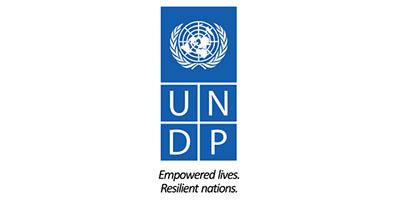
Increasing Access To Immediate And Long-Term Economic Opportunities Of Vulnerable Displacement-Affected Populations In The KRI
Through this project, DRC provides both short-term income support and more sustainable livelihood opportunities for vulnerable Syrian refugees, population displaced from other Iraqi regions and local communities in Erbil and Duhok governorates of the Kurdistan Region of Iraq. This is achieved by giving them the opportunity to gain a temporary job and join labour intensive cash for work initiatives that benefit the whole community. It also supports the access of vulnerable households to the labour market by providing women and men with vocational training, job placements and enhancing their technical and transferable skills. Some are supported to establish SMEs through business incubation activities, training and start-up grants.
Iraq STATUS: Completed
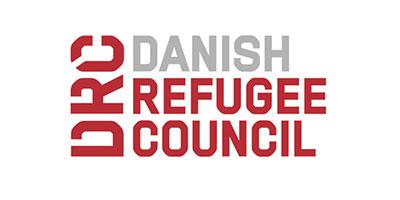
Syrian Refugees’ Opportunities Toward Resilience
This project aims to increase the socio-economic resilience of Syrian refugees, IDPs and the vulnerable population hosting them in Dohuk and Erbil Governorates in the Kurdistan Region of Iraq. This project helps those in need to find ways of earning an income through vocational, entrepreneurship and/or business skills development trainings in accordance with the identified value chain needs and their preferred enterprise option. The project primarily targets working age members of vulnerable women-led households and its approach focuses not only on improving livelihoods of Syrian refugees in camp and non-camp settings, but on building resilience and social cohesion among Syrian refugees, IDPs, and host communities.
Iraq STATUS: Completed
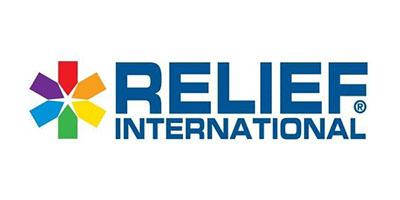
Accelerated Vocational Training Centre For The Economic Inclusion Of Tripoli’s Youth
The project aims to: enhance the job skills of youth through accessible accelerated market-based training programs, increase the integration of youth in the labour market through direct linkages to employment opportunities and create a collective mechanism for promoting the economic rights of skilled youth. Under the market-based training programs, a comprehensive and responsive accelerated vocational training centre will be established and functional and 13 accelerated vocational training programs will be implemented. Under the integration of youth in the labour market, youth will be placed in relevant jobs and will undergo coaching sessions on communication, conflict resolution and other life skills. Youth who are not placed and who have expressed business ideas will be coached by a network of MSME incubators. Under the collective advocacy actions, youth will be trained in advocacy concepts and methodologies and will then create advocacy files and action plans on economic rights, following which they will be coached to implement the action plans.
Lebanon STATUS: Completed
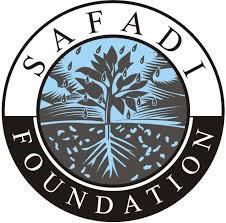
Strengthening The Protective Environment And Livelihood Opportunities For Refugees And Vulnerable Host Communities, With A Particular Focus On Women, Youth And Children In Bar Elias, Central Bekaa, Lebanon
The project aims to support refugees and host communities in Bar Elias, Central Bekaa through increasing access to livelihoods and improving their protective environment. Trócaire is working in partnership with Basmeh & Zeitooneh to provide vocational training, business management and small grants support and coding training. Refugees and host communities will also be provided with psychosocial support services and safe spaces. An advocacy strategy will also be developed regarding access to livelihoods and protection concerns of refugees and marginalised members of the host community in Lebanon to lobby for positive change.
Lebanon STATUS: Completed

Supporting Economic Opportunities And Livelihoods In Jordan
The RDPP supports the IRC to enhance vulnerable host community members and refugees access to employment and self-employment opportunities in Jordan. In partnership with the Jordanian NGO ‘Ruwwad’ and business incubator ‘Oasis500’, the project includes a combination of protection case management services (psychosocial support, counselling, and legal assistance) with the provision of financial management training, apprenticeship opportunities and business grants to beneficiaries, in order to facilitate the rehabilitation of their livelihoods and access to safe employment. The partnership with Ruwwad is intended to guarantee the continuation of the intervention also after its end. In addition, the intervention also supports new and existing small and medium enterprises (SMEs) to access finance and business development services needed to grow and ultimately create new job opportunities. Finally, the project also intends to conduct an advocacy event to share lessons learned challenges and opportunities of supporting employment and self-employment for vulnerable populations.
Jordan STATUS: Completed
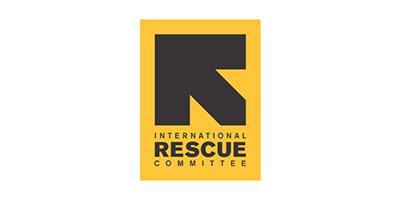
Community Empowerment Initiative In The Governorate Of Mafraq
In view of a strengthened localised response to the Syria crisis in neighbouring countries, the RDPP is partnering with the Jordanian NGO JRF to improve livelihood opportunities and socioeconomic resilience of both refugees and host community members in the governorate of Mafraq in Jordan. On the basis of the findings of a comprehensive market assessment, JRF has engaged with 10 CBOs to provide business training and mentorship to beneficiaries aiming at establishing their own businesses and job placement services, including apprenticeship opportunities to youth in search of employment.
Jordan STATUS: Completed
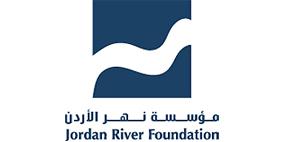
Support On The Economic And Community-Based Resilience Of Vulnerable Refugee And Host Communities In Akkar Region
Through Save the Children International, the project works with vulnerable refugee and host women, men and youth in the Akkar region to improve their coping mechanisms, economic self-reliance, and increase resilience. This will be done by supporting women and men in home based skills development activities, and youth to be engaged in entrepreneurship trainings and business support, all of whom will be trained in life skills and entrepreneurship/business training. Home based skills development beneficiaries will also be trained in food processing and value chains, while selected entrepreneurs will receive vocational trainings in line with their interests and/or income generating activities.Vulnerable communities will also be supported with community led projects by providing short term labourers with short term employment opportunities thatbenefit their communities.
Lebanon STATUS: Completed
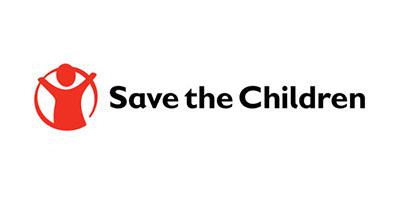
Creating Job Opportunities For Young Adults In Kurdistan
The project will improve the economic situation of vulnerable young adults from host communities, IDPs and refugees families through the creation of new businesses in Dohuk governorate. This will be done through providing business and vocational skills training to beneficiaries to enhance their possibilities of entering the labour market, and allow select beneficiaries to generate sustainable incomes and improve their livelihoods through supporting micro-small entrepreneurship initiatives through cash grants and mentorship. The project will rely on linkage between local actors (public and private) and market opportunities, and on local referral groups who will support the project in training and raising business opportunities in specific sectors.
Iraq STATUS: Completed
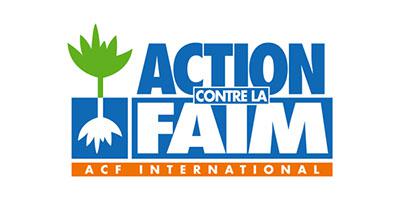
Improved Access To Sustainable Livelihood Opportunities For Vulnerable Youth And Women Refugees And Host Population Members Residing In Irbid, Jordan
Through Oxfam GB, this project seeks to improve the socio-economic situation of vulnerable Jordanian and Syrian women and youth and their access to job opportunities by building their employment, vocational skills, and their experience through placing them in internship/apprenticeship opportunities. It also provides them with opportunities for self-employment, through building their capacities to plan and manage their own income generating initiatives and through supporting them to start their own business through MSME start up grants. An online recruitment platform will also attract job and education providers. The project further identifies barriers to MSME development that prevent their full participation in the work force in the targeted areas.On the advocacy front, roundtables and media outreach events will be held with stakeholders to promote workable solutions to Jordanian authorities, civil society actors, and donors including on working permits for Syrians.
Jordan STATUS: Completed
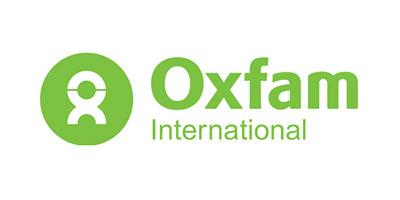
TAREEQI (My Way)
Through this project,Finn Church supports the socio-economic development of Syrian and Jordanian beneficiaries by providing them with skills and opportunities to access the labour market through self employment/enterprise or job opportunities. It will build their capacities through vocational and business skills training, and retail entrepreneurship training to enhance their access to market opportunities in Jordan. Beneficiaries will also be supported through small grants and business coaching to start up their own businesses. These initiatives will be implemented in cooperation with the Vocational Training Corporation (VTC) and the Finland-based Mercuria Business College. Through its advocacy component, the project works with the Jordanian government and international community to improve the socio-economic status of Syrian refugees, especially in terms of promoting policy initiatives to identify labour market solutions for host communities and refugees.
Jordan STATUS: Completed
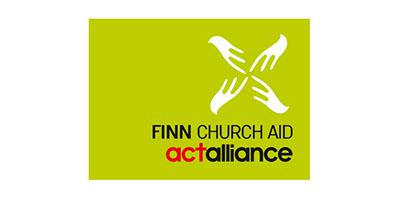
Empowering Lebanese Host Community And Fostering Self-Reliance For Displaced Syrians In South Lebanon
This project aims to improve the socio-economic resilience of Syrian refugees and the vulnerable population hosting them in South Lebanon through providing income generation opportunities. This will be carried out through vocational training, mentoring, and apprenticeships, and providing incentives and support to new businesses and established SMEs and cooperatives to hire these workers.
Lebanon STATUS: Completed
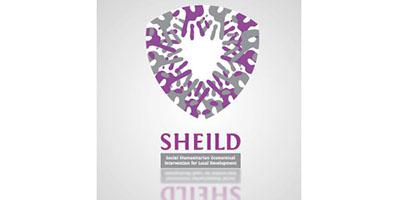
Mitigating The Impact Of The Syrian Refugee Crisis On Jordanian Vulnerable Host Communities (3x6 Approach)Skills Exchange Of Vulnerable Hosting Communities And Syrian Refugees For Enhancing Livelihoods And Social Cohesion
RDPP supported UNDP Jordan through two livelihoods initiatives, both of which aim at improving the socio economic conditions of Jordanian and Syrian women and men wishing to improve their living conditions in Jordan. Through the innovative “Skills Exchange” project, Syrian refugees with unique skills are identified to train other Jordanians who need to improve their capacities to establish their own small businesses through small grants. The project provides income support to Syrian refugees and supports improved employability skills and microbusiness development for the targeted Jordanians, aiming also to strengthen their social cohesion. The project targets one of the hardest hit governorate of Mafraq - specifically the Southern Suburb of Greater Mafraq and municipalities of Bala'ma and Al Zaatari. In the same governorate, the '3x6' project supports livelihoods and creation of employment opportunities for vulnerable affected communities, primarily women. This is done through setting up rapid employment generation schemes that allow participants to increase their income and generate savings. This new financial asset is then invested in micro and small business that the project further supports with seed funds and mentoring.
Jordan STATUS: Completed
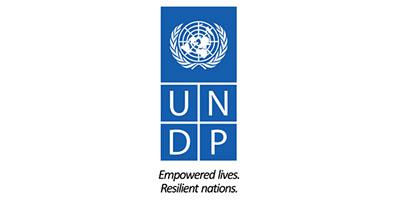
Justice And Livelihood Opportunities For All People: Enhancing Access To Protection And Employment For The Most Vulnerable Communities In Lebanon
International Alert will work in Central and North Bekaa and Akkar in partnership with Arcenciel and the Labour Watch to improve access to protection and livelihoods for vulnerable Syrian refugees. First the project will aim to inform vulnerable people to access protection mechanisms including legal aid and informal support: Strengthening Arcenciel centers as referral hubs, training community mediators for informal dispute resolution and referral, establishing and training local Lebanese-Syrian community groups to analyse and address protection challenges and conflicts and supporting them to engage in dialogue and implement community initiatives. Second the project will aim to improve opportunities for accessing the job market for vulnerable people: career development and digital literacy trainings, trainings on improved agricultural practices for Lebanese landowners/farmers and Lebanese and Syrian agricultural workers, employability trainings for vulnerable individuals, awareness sessions for employers and municipalities on good practice in integrating vulnerable people in the workforce, landscaping and infrastructure building for enterprises to create access for persons with disabilities and Conflict and Human Rights workshops with the business sector, local institutions and civil society. Finally, International Alert will develop evidence-based policy recommendations and discuss and share them with relevant stakeholders on issues such as: the use of mediation in protection of vulnerable individuals, the work conditions in the service sector in selected areas of Central Bekaa and Akkar, the role of economic actors in protection.
Lebanon STATUS: Completed
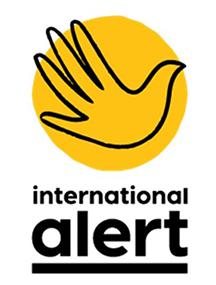
Mobilising Institutions And Civil Society To Advocate And Support Sustainable Livelihoods And Protection For The Most Vulnerable Communities In Lebanon
The project works with 13 Social Development Centers (SCDs) in Tripoli, Beirut, Mount Lebanon and Saida and aims to: improve the capacity of local institutions to deliver livelihood and protection related services, improve the capacity of vulnerable individuals to access protection and livelihoods related services and to raise awareness and advocate for protection-related topics. As such, ACTED will develop for each SDC: an internal action plan addressing community livelihood and protection needs, a market and protection resource guide and will provide each SDC with relevant protection and livelihoods related assets/renovations/trainings/curriculums. In the same areas, ACTED will provide CSOs with relevant protection related trainings/curriculums. Vulnerable individuals will undergo protection related and TVET trainings through SDCs and/or CSOs and will be provided with support in entering the labour market through apprenticeships and provision of labour market information, career guidance, counselling and job matching services. Finally on the advocacy side, beneficiaries and CSOs will be supported in leading campaigns on protection related topics, CSOs and SDCs will join a Community of Practice on a overarching protection related topic and a national campaign including key stakeholders will be held on one specific protection topic.
Lebanon STATUS: Completed

Legal Support To Syrian Refugees
The project builds on the previous project implemented by AJEM with funding from the RDPP. It aims to ensure access to legal information and services and take effective measures against violations and abuses within the penal and penitentiary systems and to advocate against discrimination towards Syrian refugees. AJEM will conduct awareness raising sessions on various issues of relevance to Syrian refugees and other vulnerable groups inside and outside detention. It will also provide legal services (counselling and assistance) to detainees and provide support to their families. On the advocacy level, AJEM will work with selected municipalities from the Bekaa to address issues of concerns to refugees, and will work with judges, general prosecutors, ISF and GSO officers on readdressing malpractices within the penal system and the detention administrations to improve existing procedures and establish new ones. AJEM will also conduct a study on the criminological assessment of detained Syrian refugees.
Lebanon STATUS: Completed
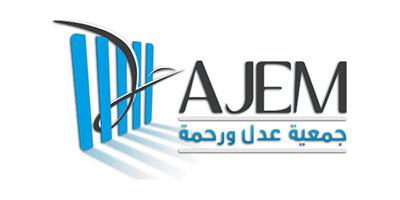
Legal Assistance To Vulnerable Persons In The Context Of The War In Syria – Phase 2
This project builds on the previous project implemented by CLDH with funding from the RDPP. The project will work on 2 levels: a service provision level and an advocacy level. First, it will provide vulnerable inmates including refugees from Syria with legal assistance in all Lebanese prisons. Refugees and vulnerable persons approaching CLDH center will also be provided with legal consultations. On the advocacy and political dialogue level, the project will conduct a baseline study on a specific human right issue or area of interest to assess Lebanon's progress towards implementing recommendations issued by various reviews undertaken (such as the UPRs etc.). Public events will be organized around this. A comprehensive assessment of the legal aid system in Lebanon will also be conducted.
Lebanon STATUS: Completed
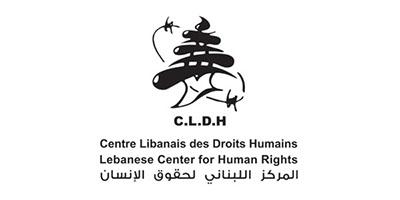
Improving Quality And Effective Management Of GBV Mitigation And Response Services In KRI
The RDPP is partnering with UNFPA to strengthen national capacities that will in turn lead to Gender-Based Violence (GBV) mitigation and response in the Kurdistan Region of Iraq. The project intends to conduct a series of capacity strengthening activities based on the existing GBV-related documents/protocols. The intervention envisages the roll-out of GBV Standard Operating Procedures among service providers and to define roles and responsibilities of different stakeholders/service providers, data management and referral pathways. The second set of capacity strengthening activities focuses on rolling out the Clinical Management of Rape (CMR) protocol, after being endorsed by the KRG Ministry of Health earlier in 2017. The protocol plays a critical role in ensuring the global standards and GBV guiding principles are met when providing clinical health services for sexual violence survivors based on survivor-centered approach. Finally, the project will support the development of a strategy to eradicate Female genital mutilation (FGM), in collaboration with the KRG High Council of Women Affairs.
Iraq STATUS: Completed
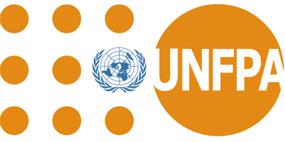
GBV Prevention & Response In KRI
The RDPP is partnering with UNICEF in the Kurdistan Region of Iraq to engage judicial, law enforcement, and security personnel in a capacity building programme to increase their ability to prevent, identify, and properly address cases of Gender-Based Violence (GBV) among women and girls. A specific training curriculum is being designed and built on build on the Standard Operating Procedures for GBV prevention and response In addition, with the collaboration of the IRC, the project will support a Case Management Coaching Programme in order to train GBV service providers to provide age appropriate, survivor-centered GBV case management services. As a result of the capacity building process, the project also includes a component of delivery of life saving activities to be carried out by three local NGOs to be identified along the implementation of the intervention, able to scale-up of their response to the current emergency.
Iraq STATUS: Completed
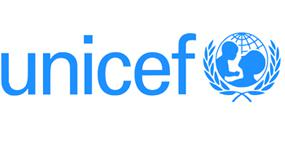
Strengthening Refugee Protection Through Capacity-Building Of Lebanese Local And National Authorities
The project supports the Ministry of Interior and Municipalities in their efforts to standardize and strengthen the performance of the municipal police - who are in the frontline dealing with refugees -and security actors, as well as to mainstream human rights and refugee protection issues. It supports the training curriculum of the Internal Security Forces, Lebanese Armed Forces and General Security with international protection modules, which address themes related to refugee and vulnerable individuals’ protection. The project also works with Lebanese universities in strengthening their capacity to integrate refugee law and protection into their curriculums and through carrying out research on refugee related matters.
Lebanon STATUS: Completed
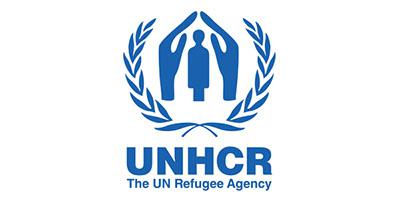
1. Mitigating The Effect Of The Syrian Refugees Crisis In Lebanon 2. RECOVER - Reinforcing And Empowering Communities To Overcome The Effects Of The Syrian Refugee Crisis (New Project)
The RDPP has supported two projects with Mercy Corps Lebanon (one completed and the other ongoing), both of which aim at empowering vulnerable communities and municipalities to prevent violence, through reducing tensions and the drivers of conflict caused by the Syrian crisis. The former project supported three municipalities in the North of the Bekaa Valley in Lebanon in contributing to reducing tensions and local conflicts between Lebanese and Syrian communities, and in improving relationships and increasing interaction among them. Key municipality staff and Lebanese and Syrian community leaders were trained in local resource management and conflict prevention to help mitigate resource-based tensions. The project also provided cash for work opportunities for Syrian refugees and Lebanese, as a means to defuse tensions and promote improved relationships, through participating in small-scale infrastructure projects. The current project works in 9 of the most vulnerable municipalities in Baalbek-Hermel and Bekaa Governorate, where the strain of the Syrian refugee crisis is causing community tensions. It provides tailored trainings and ongoing coaching and mentoring through mixed negotiation and mediation methodologies to community and municipality representatives to address a mixed variety of conflicts. Also, cash for work incentives for supporting community projects are provided which will be in the form of livelihoods projects which aim at improving access to resources and minimize competition. The project also builds the financial, operational, and communication capacity of the targeted municipalities through specific trainings that address their most significant weaknesses in order to enhance cooperation and coordination at the local and regional level aimed at improving service delivery.
Lebanon STATUS: Completed
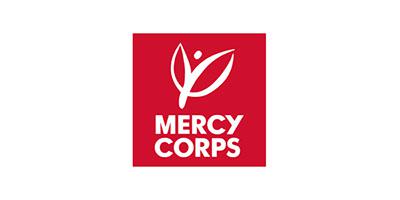
Together Towards A New Beginning For Refugee Children From Syria
The project supports improving the living conditions and social protection of working out-of-school children (both refugee and non-refugee) involved in worst forms of child labour and at risk in the targeted areas of Beirut and Mount Lebanon, through skills development and possibilities of return to school. The project also supports parents of working children in their livelihoods opportunities; through raising their awareness on their role as parents in protecting their children from exploitation in the worst forms of child labour, and supporting the decrease in possibility of children being engaged in hazardous work and dropping out from schools at an early age. It also works at the national level in improving coordination and knowledge of national actors involved in combating child labour.
Lebanon STATUS: Completed
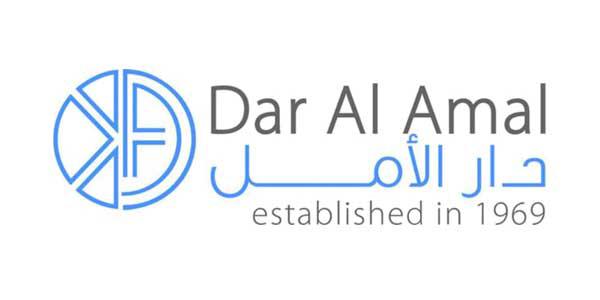
Combating Worst Form Of Child Labour Among Syrian Refugees And The Host Communities In Lebanon
The project aims to increase the knowledge base among relevant stakeholders in Lebanon such as Mayors, Municipality members, Shawishes of Informal Settlements, and other employers in the informal employment sector on child rights and the Worst Forms of Child Labour (WFCL), including laws and regulations. It raises awareness on the direct effects of Child labour especially WFCL on children and its long term damage. It also provides direct support to vulnerable children and their families (mostly refugees) by providing them with safety tools to minimize the risks and hazards of working in difficult conditions, or referring them to safe spaces in their targeted locations, and providing them with psycho-social, educational, recreational and other services. Low-income Lebanese and Syrian families with children in, or at risk of WFCL, are also offered alternative livelihood opportunities. The project targets the Bekaa region- Zahleh Cadastral, and Akkar in Lebanon.
Lebanon STATUS: Completed
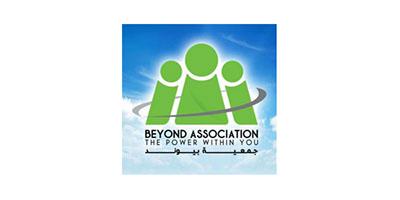
Tackling Child Labour Among Syrian Refugees And Their Host Communities In Jordan And Lebanon
This project supports the protection of children (refugees and non refugees) working in the worst forms of child labour, through capacity building and advocacy at national and local levels. It focuses on building the capacity of relevant stakeholders and key national institutions through targeting government staff; staff members of employers and workers organizations; national NGOs; police; labour inspectors; social workers and community leaders to respond and address child labour issues and develop services for children at risk of, or involved in, child labour. Through advocacy and political dialogue with authorities, parliamentarians, national officers, municipal staff and others, it also raises their awareness on risks of child labor and engages them on how to improve socio-economic conditions of refugee children and on how the lack of access to formal employment by refugees is increasing rapidly the number of children involved in worst forms of child labour.
Lebanon STATUS: Completed
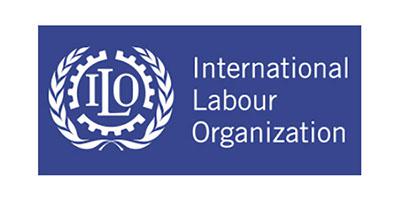
Pathways To Justice: Empowering Syrian Refugees And Their Host Communities In Jordan
RDPP and its partner JCLA recognize that legal support is key to empower vulnerable individuals and enable them to improve their lives. This project supports the provision of counseling advice and legal assistance to vulnerable Syrian refugees and host community individuals. This is done through providing legal aid services such as awareness raising sessions to Jordanians, refugees and migrants on their legal rights, particularly on sensitive issues such as personal status law, domestic and gender based violence, child rights, early marriage, and labor law. Legal aid services also include legal consultations and representations. The project also engages in advocacy work and dialogue with government bodies to contribute to improve the national judicial system.
Jordan STATUS: Completed
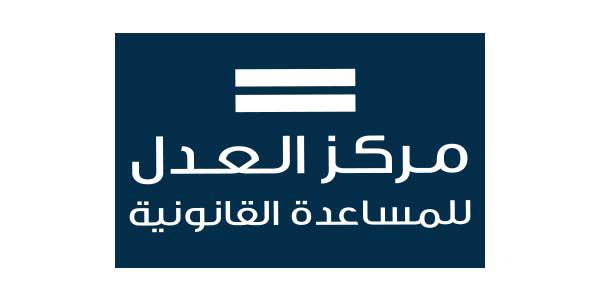
Legal Support To Syrian Refugees In Prisons
This project provides counseling advice and legal assistance to vulnerable populations (with focus on refugees) inside prisons in Lebanon, and supports families of the detained to help them cope with difficulties encountered during detention. It additionally has a legal advocacy component working with relevant stakeholders on improving procedures for monitoring cases of detention of Syrians. A new phase of the project is under discussion.
Lebanon STATUS: Completed
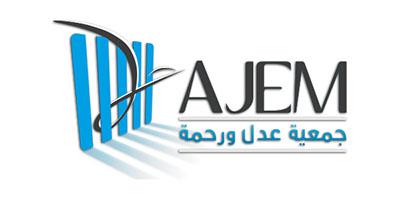
VOICE & Accountability For Syrian Women & Men
The project works with youth, primarily Syrian refugees, in advocating for their rights towards authorities through artistic tools, and increasing their capacity to raise awareness in their communities as empowered and active agents for change. The project also focuses on the issue of gender equality and advocates against sexual and gender-based violence (SGBV), including through work on masculinity issues with men to change roles in society. Through policy level dialogue and capacity building, ABAAD collaborates with national government institutions towards prevention and response to SGBV. The project provided protection to SGBV survivors through direct services in its shelter houses, such as specialized case management, life skills training and awareness sessions by the shelter staff. It targets specific areas in South Lebanon, North Lebanon and Middle Bekaa. A new phase of the project is under discussion
Lebanon STATUS: Completed

ACCESS: Accountable Cross Country Coordination For GBV Emergency Safe Settings
The overall aim of the project is to contribute to a holistic and accountable GBV protection, prevention and response mechanisms at institutional and community levels. Under the project, relevant GBV tools will be produced and endorsed by concerned actors and the capacities of different stakeholders at national and sub-national levels will be improved to respond to the needs of GBV survivors. The project will also work on increasing the sense of safety, knowledge and competencies on a range of different basic life-skills of women survivors or at risk of GBV. In addition, GBV and child protection community front-liners in Lebanon will be equipped with the needed knowledge and skills on child marriage and case management of rape. Community front-liners will in turn raise the awareness of female and male youth from Syrian and host communities on these issues. Working also with men, men with abusive behaviours will be targeted with quality engendered psycho-therapy sessions. Finally, ABAAD will work on a national campaign as part of the 16 Days of Activism Against Gender-Based Violence to sensitize on relevant issues related to sexual exploitation and rape-marriage laws in Lebanon.
Lebanon STATUS: Completed

Enhanced Capacity Of CSOs In Lebanon To Influence Regulatory Frameworks And Policies Affecting Refugees’ Protection And Increase The Access To Protection Services And Assistance For Refugees
In partnership with ALEF (Act for Human Rights), Oxfam will work with a network of protection service providers, mainly CSOs in 5 districts in Lebanon (North Bekaa, West Bekaa, Rachaya, Arsal and T5). Working on the capacity building of the network, Oxfam and ALEF will work with the network to have an updated advocacy strategy and action plan, to develop a protection monitoring framework that allows network members to generate evidence for advocacy purposes and finally to jointly implement advocacy initiatives at the local, national and international levels achieving the objectives of the network. On the service provision level, a mapping of specific service provision needs and gaps at the districts and cadastral levels in the Bekaa and T5 will be conducted, a number of innovative service provision projects will be implemented by selected network members through collaborative outreach activities. Finally, on the capacity building side, Oxfam will deliver a tailored capacity building package on networking, protection and advocacy themes for the protection network members and will organise networking and learning exchange visits among network members CSOs and with other CSOs doing similar work in the region target locations.
Lebanon STATUS: Completed

Justice And Livelihood Opportunities For All People: Enhancing Access To Protection And Employment For The Most Vulnerable Communities In Lebanon
International Alert will work in Central and North Bekaa and Akkar in partnership with Arcenciel and the Labour Watch to improve access to protection and livelihoods for vulnerable Syrian refugees. First the project will aim to inform vulnerable people to access protection mechanisms including legal aid and informal support: Strengthening Arcenciel centers as referral hubs, training community mediators for informal dispute resolution and referral, establishing and training local Lebanese-Syrian community groups to analyse and address protection challenges and conflicts and supporting them to engage in dialogue and implement community initiatives. Second the project will aim to improve opportunities for accessing the job market for vulnerable people: career development and digital literacy trainings, trainings on improved agricultural practices for Lebanese landowners/farmers and Lebanese and Syrian agricultural workers, employability trainings for vulnerable individuals, awareness sessions for employers and municipalities on good practice in integrating vulnerable people in the workforce, landscaping and infrastructure building for enterprises to create access for persons with disabilities and Conflict and Human Rights workshops with the business sector, local institutions and civil society. Finally, International Alert will develop evidence-based policy recommendations and discuss and share them with relevant stakeholders on issues such as: the use of mediation in protection of vulnerable individuals, the work conditions in the service sector in selected areas of Central Bekaa and Akkar, the role of economic actors in protection.
Lebanon STATUS: Completed

Mobilising Institutions And Civil Society To Advocate And Support Sustainable Livelihoods And Protection For The Most Vulnerable Communities In Lebanon
The project works with 13 Social Development Centers (SCDs) in Tripoli, Beirut, Mount Lebanon and Saida and aims to: improve the capacity of local institutions to deliver livelihood and protection related services, improve the capacity of vulnerable individuals to access protection and livelihoods related services and to raise awareness and advocate for protection-related topics. As such, ACTED will develop for each SDC: an internal action plan addressing community livelihood and protection needs, a market and protection resource guide and will provide each SDC with relevant protection and livelihoods related assets/renovations/trainings/curriculums. In the same areas, ACTED will provide CSOs with relevant protection related trainings/curriculums. Vulnerable individuals will undergo protection related and TVET trainings through SDCs and/or CSOs and will be provided with support in entering the labour market through apprenticeships and provision of labour market information, career guidance, counselling and job matching services. Finally on the advocacy side, beneficiaries and CSOs will be supported in leading campaigns on protection related topics, CSOs and SDCs will join a Community of Practice on a overarching protection related topic and a national campaign including key stakeholders will be held on one specific protection topic.
Lebanon STATUS: Completed

Legal Support To Syrian Refugees
The project builds on the previous project implemented by AJEM with funding from the RDPP. It aims to ensure access to legal information and services and take effective measures against violations and abuses within the penal and penitentiary systems and to advocate against discrimination towards Syrian refugees. AJEM will conduct awareness raising sessions on various issues of relevance to Syrian refugees and other vulnerable groups inside and outside detention. It will also provide legal services (counselling and assistance) to detainees and provide support to their families. On the advocacy level, AJEM will work with selected municipalities from the Bekaa to address issues of concerns to refugees, and will work with judges, general prosecutors, ISF and GSO officers on readdressing malpractices within the penal system and the detention administrations to improve existing procedures and establish new ones. AJEM will also conduct a study on the criminological assessment of detained Syrian refugees.
Lebanon STATUS: Completed

Legal Assistance To Vulnerable Persons In The Context Of The War In Syria – Phase 2
This project builds on the previous project implemented by CLDH with funding from the RDPP. The project will work on 2 levels: a service provision level and an advocacy level. First, it will provide vulnerable inmates including refugees from Syria with legal assistance in all Lebanese prisons. Refugees and vulnerable persons approaching CLDH center will also be provided with legal consultations. On the advocacy and political dialogue level, the project will conduct a baseline study on a specific human right issue or area of interest to assess Lebanon's progress towards implementing recommendations issued by various reviews undertaken (such as the UPRs etc.). Public events will be organized around this. A comprehensive assessment of the legal aid system in Lebanon will also be conducted.
Lebanon STATUS: Completed

Improving Quality And Effective Management Of GBV Mitigation And Response Services In KRI
The RDPP is partnering with UNFPA to strengthen national capacities that will in turn lead to Gender-Based Violence (GBV) mitigation and response in the Kurdistan Region of Iraq. The project intends to conduct a series of capacity strengthening activities based on the existing GBV-related documents/protocols. The intervention envisages the roll-out of GBV Standard Operating Procedures among service providers and to define roles and responsibilities of different stakeholders/service providers, data management and referral pathways. The second set of capacity strengthening activities focuses on rolling out the Clinical Management of Rape (CMR) protocol, after being endorsed by the KRG Ministry of Health earlier in 2017. The protocol plays a critical role in ensuring the global standards and GBV guiding principles are met when providing clinical health services for sexual violence survivors based on survivor-centered approach. Finally, the project will support the development of a strategy to eradicate Female genital mutilation (FGM), in collaboration with the KRG High Council of Women Affairs.
Iraq STATUS: Completed

GBV Prevention & Response In KRI
The RDPP is partnering with UNICEF in the Kurdistan Region of Iraq to engage judicial, law enforcement, and security personnel in a capacity building programme to increase their ability to prevent, identify, and properly address cases of Gender-Based Violence (GBV) among women and girls. A specific training curriculum is being designed and built on build on the Standard Operating Procedures for GBV prevention and response In addition, with the collaboration of the IRC, the project will support a Case Management Coaching Programme in order to train GBV service providers to provide age appropriate, survivor-centered GBV case management services. As a result of the capacity building process, the project also includes a component of delivery of life saving activities to be carried out by three local NGOs to be identified along the implementation of the intervention, able to scale-up of their response to the current emergency.
Iraq STATUS: Completed

Strengthening Refugee Protection Through Capacity-Building Of Lebanese Local And National Authorities
The project supports the Ministry of Interior and Municipalities in their efforts to standardize and strengthen the performance of the municipal police - who are in the frontline dealing with refugees -and security actors, as well as to mainstream human rights and refugee protection issues. It supports the training curriculum of the Internal Security Forces, Lebanese Armed Forces and General Security with international protection modules, which address themes related to refugee and vulnerable individuals’ protection. The project also works with Lebanese universities in strengthening their capacity to integrate refugee law and protection into their curriculums and through carrying out research on refugee related matters.
Lebanon STATUS: Completed

1. Mitigating The Effect Of The Syrian Refugees Crisis In Lebanon 2. RECOVER - Reinforcing And Empowering Communities To Overcome The Effects Of The Syrian Refugee Crisis (New Project)
The RDPP has supported two projects with Mercy Corps Lebanon (one completed and the other ongoing), both of which aim at empowering vulnerable communities and municipalities to prevent violence, through reducing tensions and the drivers of conflict caused by the Syrian crisis. The former project supported three municipalities in the North of the Bekaa Valley in Lebanon in contributing to reducing tensions and local conflicts between Lebanese and Syrian communities, and in improving relationships and increasing interaction among them. Key municipality staff and Lebanese and Syrian community leaders were trained in local resource management and conflict prevention to help mitigate resource-based tensions. The project also provided cash for work opportunities for Syrian refugees and Lebanese, as a means to defuse tensions and promote improved relationships, through participating in small-scale infrastructure projects. The current project works in 9 of the most vulnerable municipalities in Baalbek-Hermel and Bekaa Governorate, where the strain of the Syrian refugee crisis is causing community tensions. It provides tailored trainings and ongoing coaching and mentoring through mixed negotiation and mediation methodologies to community and municipality representatives to address a mixed variety of conflicts. Also, cash for work incentives for supporting community projects are provided which will be in the form of livelihoods projects which aim at improving access to resources and minimize competition. The project also builds the financial, operational, and communication capacity of the targeted municipalities through specific trainings that address their most significant weaknesses in order to enhance cooperation and coordination at the local and regional level aimed at improving service delivery.
Lebanon STATUS: Completed

Together Towards A New Beginning For Refugee Children From Syria
The project supports improving the living conditions and social protection of working out-of-school children (both refugee and non-refugee) involved in worst forms of child labour and at risk in the targeted areas of Beirut and Mount Lebanon, through skills development and possibilities of return to school. The project also supports parents of working children in their livelihoods opportunities; through raising their awareness on their role as parents in protecting their children from exploitation in the worst forms of child labour, and supporting the decrease in possibility of children being engaged in hazardous work and dropping out from schools at an early age. It also works at the national level in improving coordination and knowledge of national actors involved in combating child labour.
Lebanon STATUS: Completed

Combating Worst Form Of Child Labour Among Syrian Refugees And The Host Communities In Lebanon
The project aims to increase the knowledge base among relevant stakeholders in Lebanon such as Mayors, Municipality members, Shawishes of Informal Settlements, and other employers in the informal employment sector on child rights and the Worst Forms of Child Labour (WFCL), including laws and regulations. It raises awareness on the direct effects of Child labour especially WFCL on children and its long term damage. It also provides direct support to vulnerable children and their families (mostly refugees) by providing them with safety tools to minimize the risks and hazards of working in difficult conditions, or referring them to safe spaces in their targeted locations, and providing them with psycho-social, educational, recreational and other services. Low-income Lebanese and Syrian families with children in, or at risk of WFCL, are also offered alternative livelihood opportunities. The project targets the Bekaa region- Zahleh Cadastral, and Akkar in Lebanon.
Lebanon STATUS: Completed

Tackling Child Labour Among Syrian Refugees And Their Host Communities In Jordan And Lebanon
This project supports the protection of children (refugees and non refugees) working in the worst forms of child labour, through capacity building and advocacy at national and local levels. It focuses on building the capacity of relevant stakeholders and key national institutions through targeting government staff; staff members of employers and workers organizations; national NGOs; police; labour inspectors; social workers and community leaders to respond and address child labour issues and develop services for children at risk of, or involved in, child labour. Through advocacy and political dialogue with authorities, parliamentarians, national officers, municipal staff and others, it also raises their awareness on risks of child labor and engages them on how to improve socio-economic conditions of refugee children and on how the lack of access to formal employment by refugees is increasing rapidly the number of children involved in worst forms of child labour.
Lebanon STATUS: Completed

Pathways To Justice: Empowering Syrian Refugees And Their Host Communities In Jordan
RDPP and its partner JCLA recognize that legal support is key to empower vulnerable individuals and enable them to improve their lives. This project supports the provision of counseling advice and legal assistance to vulnerable Syrian refugees and host community individuals. This is done through providing legal aid services such as awareness raising sessions to Jordanians, refugees and migrants on their legal rights, particularly on sensitive issues such as personal status law, domestic and gender based violence, child rights, early marriage, and labor law. Legal aid services also include legal consultations and representations. The project also engages in advocacy work and dialogue with government bodies to contribute to improve the national judicial system.
Jordan STATUS: Completed

Legal Support To Syrian Refugees In Prisons
This project provides counseling advice and legal assistance to vulnerable populations (with focus on refugees) inside prisons in Lebanon, and supports families of the detained to help them cope with difficulties encountered during detention. It additionally has a legal advocacy component working with relevant stakeholders on improving procedures for monitoring cases of detention of Syrians. A new phase of the project is under discussion.
Lebanon STATUS: Completed

Strengthening resilience and long-term rehabilitation through skills development
This project aims at increasing resilience and livelihood opportunities of targeted Syrian refugees and vulnerable host communities to aid long term rehabilitation. The project supported Syrian and Jordanian youth and women through increased income, employment opportunities on farms, and engaging in cooperatives. LWF also established apprenticeship schemes for graduates from vocational training centers, and women’s self-help groups. Awareness campaigns were also conducted on working conditions, policies and practices, and work permits.
Jordan STATUS: Completed

Empowering Women And Youths In Lebanon Now! (EMPOWERING NOW!)
The project supports mostly female refugees in Beirut/Mount Lebanon, Bekaa, South Lebanon and North Lebanon, to be economically active and self reliant, while improving their opportunities to enter the labour market. This is done by enhancing their professional (technical, vocational) and life skills opportunities. These vulnerable groups are then provided with work-related experience, and placement/internship opportunities, while some women producers and cooperatives are supported to establish their businesses through start up grants. In an effort to improve the psycho-social well being of the targeted population and their ability to cope with the effects of the Syrian crisis, the project also supports beneficiaries through psychosocial group and individual counselling, and seeks to improve social cohesion between Syrian refugees and host communities.
Lebanon STATUS: Completed

Equitable Access To Dignifying And Safe Livelihood Opportunities For Displacement-Affected Populations In The Bekaa
This project seeks to facilitate employability and contribute to the self reliance of vulnerable refugee and host populations, particularly for youth and women, through job matching, apprenticeships and referral of jobseekers to employers in the Bekka area of Lebanon. This will be done through linking job seekers to job opportunities that match their skills and preferences, through providing job counseling services, and through providing support for micro and small enterprise development. The project also has research and advocacy components whereby policy barriers to Syrians’ participation in the labour market are also explored with policy makers and civil society.
Lebanon STATUS: Completed

Support To Livelihood And Local Economic Development Opportunities In Host Communities
The project supports enhancing access to employment and self-employment opportunities for vulnerable refugees and Lebanese host community in Akkar and Mount Lebanon. It does so through building networks and market and home-based skills of the targeted population through vocational training, complemented with basic financial management trainings, and through on the job training through apprenticeships with private sector firms and NGOs. It also provides job and legal counselling, employment referrals, and referrals to specialized service providers. The project also promotes job creation by supporting both entrepreneurs and existing microenterprises to establish or expand businesses for sustained and profitable self-employment and employment generation.
Lebanon STATUS: Completed

Support To Livelihood And Local Economic Development Opportunities In Host Communities
This project supported improved livelihoods in the Bekaa, North, and Mount Lebanon areas through: a) cash for work and internships for youth (refugees and host communities) through improving public infrastructure and environment assets in areas with most vulnerable host communities; b)supported internship programmes for youth and c)supported vocational/skills training and creation of micro and small enterprises (MSMEs), with mentoring support, through provision of cash grants. The project also supported increasing the competitiveness of existing conflict-affected MSMEs in the targeted affected areas through capacity building, equipment upgrade and paid internships of vulnerable trained youth.
Lebanon STATUS: Completed

Increasing Access To Immediate And Long-Term Economic Opportunities Of Vulnerable Displacement-Affected Populations In The KRI
Through this project, DRC provides both short-term income support and more sustainable livelihood opportunities for vulnerable Syrian refugees, population displaced from other Iraqi regions and local communities in Erbil and Duhok governorates of the Kurdistan Region of Iraq. This is achieved by giving them the opportunity to gain a temporary job and join labour intensive cash for work initiatives that benefit the whole community. It also supports the access of vulnerable households to the labour market by providing women and men with vocational training, job placements and enhancing their technical and transferable skills. Some are supported to establish SMEs through business incubation activities, training and start-up grants.
Iraq STATUS: Completed

Syrian Refugees’ Opportunities Toward Resilience
This project aims to increase the socio-economic resilience of Syrian refugees, IDPs and the vulnerable population hosting them in Dohuk and Erbil Governorates in the Kurdistan Region of Iraq. This project helps those in need to find ways of earning an income through vocational, entrepreneurship and/or business skills development trainings in accordance with the identified value chain needs and their preferred enterprise option. The project primarily targets working age members of vulnerable women-led households and its approach focuses not only on improving livelihoods of Syrian refugees in camp and non-camp settings, but on building resilience and social cohesion among Syrian refugees, IDPs, and host communities.
Iraq STATUS: Completed

Accelerated Vocational Training Centre For The Economic Inclusion Of Tripoli’s Youth
The project aims to: enhance the job skills of youth through accessible accelerated market-based training programs, increase the integration of youth in the labour market through direct linkages to employment opportunities and create a collective mechanism for promoting the economic rights of skilled youth. Under the market-based training programs, a comprehensive and responsive accelerated vocational training centre will be established and functional and 13 accelerated vocational training programs will be implemented. Under the integration of youth in the labour market, youth will be placed in relevant jobs and will undergo coaching sessions on communication, conflict resolution and other life skills. Youth who are not placed and who have expressed business ideas will be coached by a network of MSME incubators. Under the collective advocacy actions, youth will be trained in advocacy concepts and methodologies and will then create advocacy files and action plans on economic rights, following which they will be coached to implement the action plans.
Lebanon STATUS: Completed

Strengthening The Protective Environment And Livelihood Opportunities For Refugees And Vulnerable Host Communities, With A Particular Focus On Women, Youth And Children In Bar Elias, Central Bekaa, Lebanon
The project aims to support refugees and host communities in Bar Elias, Central Bekaa through increasing access to livelihoods and improving their protective environment. Trócaire is working in partnership with Basmeh & Zeitooneh to provide vocational training, business management and small grants support and coding training. Refugees and host communities will also be provided with psychosocial support services and safe spaces. An advocacy strategy will also be developed regarding access to livelihoods and protection concerns of refugees and marginalised members of the host community in Lebanon to lobby for positive change.
Lebanon STATUS: Completed

Supporting Economic Opportunities And Livelihoods In Jordan
The RDPP supports the IRC to enhance vulnerable host community members and refugees access to employment and self-employment opportunities in Jordan. In partnership with the Jordanian NGO ‘Ruwwad’ and business incubator ‘Oasis500’, the project includes a combination of protection case management services (psychosocial support, counselling, and legal assistance) with the provision of financial management training, apprenticeship opportunities and business grants to beneficiaries, in order to facilitate the rehabilitation of their livelihoods and access to safe employment. The partnership with Ruwwad is intended to guarantee the continuation of the intervention also after its end. In addition, the intervention also supports new and existing small and medium enterprises (SMEs) to access finance and business development services needed to grow and ultimately create new job opportunities. Finally, the project also intends to conduct an advocacy event to share lessons learned challenges and opportunities of supporting employment and self-employment for vulnerable populations.
Jordan STATUS: Completed

Community Empowerment Initiative In The Governorate Of Mafraq
In view of a strengthened localised response to the Syria crisis in neighbouring countries, the RDPP is partnering with the Jordanian NGO JRF to improve livelihood opportunities and socioeconomic resilience of both refugees and host community members in the governorate of Mafraq in Jordan. On the basis of the findings of a comprehensive market assessment, JRF has engaged with 10 CBOs to provide business training and mentorship to beneficiaries aiming at establishing their own businesses and job placement services, including apprenticeship opportunities to youth in search of employment.
Jordan STATUS: Completed

Support On The Economic And Community-Based Resilience Of Vulnerable Refugee And Host Communities In Akkar Region
Through Save the Children International, the project works with vulnerable refugee and host women, men and youth in the Akkar region to improve their coping mechanisms, economic self-reliance, and increase resilience. This will be done by supporting women and men in home based skills development activities, and youth to be engaged in entrepreneurship trainings and business support, all of whom will be trained in life skills and entrepreneurship/business training. Home based skills development beneficiaries will also be trained in food processing and value chains, while selected entrepreneurs will receive vocational trainings in line with their interests and/or income generating activities.Vulnerable communities will also be supported with community led projects by providing short term labourers with short term employment opportunities thatbenefit their communities.
Lebanon STATUS: Completed

Creating Job Opportunities For Young Adults In Kurdistan
The project will improve the economic situation of vulnerable young adults from host communities, IDPs and refugees families through the creation of new businesses in Dohuk governorate. This will be done through providing business and vocational skills training to beneficiaries to enhance their possibilities of entering the labour market, and allow select beneficiaries to generate sustainable incomes and improve their livelihoods through supporting micro-small entrepreneurship initiatives through cash grants and mentorship. The project will rely on linkage between local actors (public and private) and market opportunities, and on local referral groups who will support the project in training and raising business opportunities in specific sectors.
Iraq STATUS: Completed

Improved Access To Sustainable Livelihood Opportunities For Vulnerable Youth And Women Refugees And Host Population Members Residing In Irbid, Jordan
Through Oxfam GB, this project seeks to improve the socio-economic situation of vulnerable Jordanian and Syrian women and youth and their access to job opportunities by building their employment, vocational skills, and their experience through placing them in internship/apprenticeship opportunities. It also provides them with opportunities for self-employment, through building their capacities to plan and manage their own income generating initiatives and through supporting them to start their own business through MSME start up grants. An online recruitment platform will also attract job and education providers. The project further identifies barriers to MSME development that prevent their full participation in the work force in the targeted areas.On the advocacy front, roundtables and media outreach events will be held with stakeholders to promote workable solutions to Jordanian authorities, civil society actors, and donors including on working permits for Syrians.
Jordan STATUS: Completed

TAREEQI (My Way)
Through this project,Finn Church supports the socio-economic development of Syrian and Jordanian beneficiaries by providing them with skills and opportunities to access the labour market through self employment/enterprise or job opportunities. It will build their capacities through vocational and business skills training, and retail entrepreneurship training to enhance their access to market opportunities in Jordan. Beneficiaries will also be supported through small grants and business coaching to start up their own businesses. These initiatives will be implemented in cooperation with the Vocational Training Corporation (VTC) and the Finland-based Mercuria Business College. Through its advocacy component, the project works with the Jordanian government and international community to improve the socio-economic status of Syrian refugees, especially in terms of promoting policy initiatives to identify labour market solutions for host communities and refugees.
Jordan STATUS: Completed

Empowering Lebanese Host Community And Fostering Self-Reliance For Displaced Syrians In South Lebanon
This project aims to improve the socio-economic resilience of Syrian refugees and the vulnerable population hosting them in South Lebanon through providing income generation opportunities. This will be carried out through vocational training, mentoring, and apprenticeships, and providing incentives and support to new businesses and established SMEs and cooperatives to hire these workers.
Lebanon STATUS: Completed

Mitigating The Impact Of The Syrian Refugee Crisis On Jordanian Vulnerable Host Communities (3x6 Approach)Skills Exchange Of Vulnerable Hosting Communities And Syrian Refugees For Enhancing Livelihoods And Social Cohesion
RDPP supported UNDP Jordan through two livelihoods initiatives, both of which aim at improving the socio economic conditions of Jordanian and Syrian women and men wishing to improve their living conditions in Jordan. Through the innovative “Skills Exchange” project, Syrian refugees with unique skills are identified to train other Jordanians who need to improve their capacities to establish their own small businesses through small grants. The project provides income support to Syrian refugees and supports improved employability skills and microbusiness development for the targeted Jordanians, aiming also to strengthen their social cohesion. The project targets one of the hardest hit governorate of Mafraq - specifically the Southern Suburb of Greater Mafraq and municipalities of Bala'ma and Al Zaatari. In the same governorate, the '3x6' project supports livelihoods and creation of employment opportunities for vulnerable affected communities, primarily women. This is done through setting up rapid employment generation schemes that allow participants to increase their income and generate savings. This new financial asset is then invested in micro and small business that the project further supports with seed funds and mentoring.
Jordan STATUS: Completed

Regional Survey On Impact Of Displacement On The Socio-Economic And Living Conditions Of Refugees And Host Communities
With the support of the RDPP and UNHCR, the World Bank is conducting a regional survey, covering Lebanon, Jordan and Iraq (KRI), that measures the impact of displacement on the socio-economic and living conditions of refugees and host communities. The research will provide relevant and evidence-based information necessary for the RDPP and humanitarian and development actors (including governments) collectively to tailor the response amidst the rapidly changing environment and priorities
Lebanon STATUS: completed

Forced Migration Review Special Issue On The Syrian Crisis: Displacement And Protection
The RDPP supported the publication of a special issue of the Forced Migration Review from Oxford University’s Refugee Studies Centre, on “The Syria crisis, displacement and protection”. The issue explores protection and development-led strategies that face the displacement challenges in the region, focusing primarily on costs and impacts of displacement on Syrian refugees and host countries, and on protection needs of the refugees
Lebanon STATUS: completed

Durable Solution Platform For Displaced Syrians
The RDPP is supporting the “Durable Solutions Platform” created by the consortium of the three INGOs. The project aims to create a civil society-led Durable Solutions Platform to develop forward thinking scenarios for possible future solutions, aiming to inform programming and planning for the Syrian refugee crisis. The platform conducts research on policy options in a solutions-oriented perspective and has a strong component on advocacy and dialogue. It aims to provide clarity on rights and guiding principles, taking into account international and national law and policy. These recommendations will be developed through a robust research agenda set out by the Durable Solutions Platform.
Lebanon STATUS: Completed

Development Of Evidence-Based Policy Options And Frameworks For The Accommodation Of Refugees In Countries Affected By The Syria Crisis
The RDPP is supporting UNDP Sub-regional Facility to engage governments, civil society, donors and other actors on policy options for long-term planning including refugees. The project addresses the gap in analysis, understanding and dialogue about country-specific policy options for governments in the region faced with accommodating refugees from Syria and the impact of the crisis. It provides a process for governments and the international community to share knowledge, explore options and create the required policy space for decision making, through the following three phases: (i) mapping and building evidence and scenarios: through mapping and collecting relevant data from existing research and new research, including data about the financial impact of the crisis, policies, legal frameworks, actual practices regarding socio-economic opportunities for refugees, and social inclusion and cohesion. (ii) conducting national and cross-regional policy dialogues: through organizing a series of policy dialogues in each country . (iii) consolidating options for good policy and practice. The project works in partnership with governments in neighbouring countries, UNHCR, ESCWA, the World Bank and other development organisations in the region.
Lebanon STATUS: Completed

Research On The Education, Skills, Work Experiences And Work Preferences Of Syrians In Jordan
The RDPP, in partnership with the Jordanian Ministry of Planning and International Cooperation (MoPIC), is supporting the “Research on the education, skills, work experiences and work preferences of Syrians in Jordan” (RESW), an initiative carried out by the Oslo-based Fafo Institute for Labour and Social Research and the Jordanian Department of Statistics. The project aims at collecting primary data and reliable information on socio-demographic characteristics of the Syrian population in Jordan, and its educational and professional background. Through a nation-wide survey targeting 9,200 Syrian households in the Kingdom, the RESW intends to enable the Jordanian Government to develop, adjust, monitor, and evaluate labour market policies, livelihoods interventions and programs targeting host and refugee communities in Jordan..
Jordan STATUS: Completed

Forced Migration Review Issue On Syrians In Displacement
The RDPP supported the publication of issue 57 of the Forced Migration Review from Oxford University’s Refugee Studies Centre, titled “Syrians in displacement”. The issue reflects on learning around the protracted situation of Syrian displacement as the conflict continues and features articles from several RDPP partners.
Jordan STATUS: Completed

